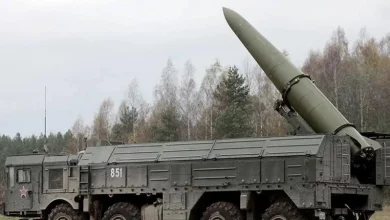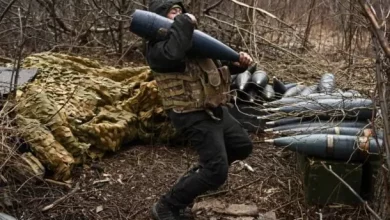Britain and Germany to develop new long-range weapons

The UK and Germany have signed the groundbreaking Trinity House Agreement, a defence pact that will see the two nations collaborate on developing new long-range strike weapons and bolster the UK defence industry.
The agreement, signed by Defence Secretary John Healey MP and German Defence Minister Boris Pistorius, aims to strengthen European security and drive investment in both countries.
A key feature of the agreement is the joint development of a new long-range strike system designed to be more precise and have greater range than current systems, such as the Storm Shadow. This initiative will significantly enhance NATO’s ability to respond to threats more effectively, particularly in the context of growing Russian aggression in Eastern Europe.
The Trinity House Agreement will also deliver a substantial boost to the UK economy, paving the way for the construction of a new artillery gun barrel manufacturing facility in the UK. The factory, operated by German defence company Rheinmetall, will create more than 400 jobs and bring nearly half a billion pounds to the British economy over the next decade. British steel, produced by Sheffield Forgemasters, will be used in the production of these gun barrels, marking the first time in ten years that the UK has manufactured artillery components domestically.
The agreement also focuses on enhancing cooperation in other areas, such as the production of Boxer armoured vehicles and the development of land-based drones. This collaboration will see both nations’ armies train and exercise together, particularly along NATO’s Eastern Flank, helping to develop new military strategies and strengthen European defence capabilities.
In addition to land-based cooperation, the Trinity House Agreement includes provisions to protect critical underwater infrastructure in the North Sea. The UK and Germany will work together to enhance surveillance and detection of adversary activity, particularly around seabed cables, which are essential for communications and energy security.
German aircraft will also periodically operate out of RAF Lossiemouth in Scotland to help secure the North Atlantic as part of the agreement. These deployments will bolster NATO’s surveillance and defence capabilities in the region.
The agreement includes further collaboration on drone technology, with plans to develop drones that can operate alongside fighter jets, as well as unmanned maritime systems to improve naval operations. Both nations will also cooperate on integrating air defence systems to better protect European airspace from long-range missile threats, building on agreements made at recent NATO Defence Ministers meetings.
The Trinity House Agreement not only strengthens the defence ties between the UK and Germany but also delivers on a long-term commitment to support Ukraine. The UK and Germany will jointly work on modernising German Sea King helicopters with advanced missile systems, and explore additional capability coalitions to further enhance Ukraine’s military capabilities.
Defence Secretary John Healey MP said:
“The Trinity House Agreement is a milestone moment in our relationship with Germany and a major strengthening of Europe’s security.
It secures unprecedented levels of new cooperation with the German Armed Forces and industry, bringing benefits to our shared security and prosperity, protecting our shared values and boosting our defence industrial bases.
This landmark agreement delivers on the Government’s manifesto commitment to strike a new defence relationship with Germany – less than four months since winning the election in July – and we will build on this new cooperation in the months and years ahead.
I pay tribute to our negotiating teams who have worked hard at pace to deliver this.”
German Defence Minister Boris Pistorius said:
“The UK and Germany are moving closer together. With projects across the air, land, sea, and cyber domains, we will jointly increase our defence capabilities, thereby strengthening the European pillar within NATO. We can only strengthen our ability to act together. This is why our cooperation projects are open to other partners.
We must not take security in Europe for granted. Russia is waging war against Ukraine, it is increasing its weapons production immensely and has repeatedly launched hybrid attacks on our partners in Eastern Europe.
With the Trinity House Agreement, we are showing that the NATO Allies have recognised what these times require and are determined to improve their deterrence and defence capabilities. As it lays the foundation for future projects, the Trinity House Agreement is an important contribution to this. It is particularly important to me that we cooperate even more closely to strengthen NATO’s eastern flank and to close critical capability gaps, for instance in the field of long-range strike weapons.”
Armin Papperger, CEO and Chairman of Rheinmetall AG commented that:
“Rheinmetall’s investment in the gun hall reflects a forward-looking approach to innovation, collaboration, and national defence. It ensures the UK remains a leader in developing and manufacturing defence technologies that safeguard both national and global security.”
Gary Nutter, Chief Executive Officer at Sheffield Forgemasters, said:
“I am delighted to confirm that Sheffield Forgemasters will reinstate gun barrels manufacture after a 20-year hiatus, to supply large-calibre gun-barrels to Germany’s Rheinmetall AG, servicing UK defence contracts and exports.”





